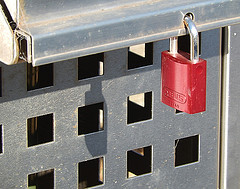Password Security for You and Your Staff on Your Online Community
I’m in the process of trying to slightly improve the security of the logins I use online. Yes, this has to do with the story I told the other day. One of the things that I am doing is strengthening the passwords on some of my crucial logins. This includes the logins for the online communities that I manage.
I thought I would encourage you to do the same.
Use as many different characters as your software will allow you to use. If possible, not just letters and numbers, but also symbols. Passwords like :!kT!vuDl%3qFFKt~|dnYt’xU=KB@v. But don’t stop with your account. Encourage your staff members to do the same for their accounts.
But don’t stop there. Think about how else people can access your account. Likely, the only other means is through the email address listed on your account, through a forgot password form. They hack the email, request a password and they are in. Ensure your email password is similarly strong and that, if your email service offers it, you have two-factor authentication enabled. Suggest that your staff to do the same.
This would apply to any login that connects to your site or data. If it allows people to see information that they can’t see in Google, make sure the password is complex. For example, your web hosting login and your MySQL username and password, if you use MySQL databases.
It won’t make you bulletproof, but it also can’t hurt. You may already know this, but just to be safe, you should never use the same password more than once. Use a password manager to keep track of all of them. I use KeePass, but there are others, like LastPass and 1Password. And lock your password database down, of course.
I don’t even like password hints and reminders. What’s my mother’s maiden name? It’s HJ67f4h*%fa, that’s what. Heh.
I don’t mean to suggest that your community login is some hot ticket item that people are constantly gunning for. And yet, it is a target for people. By taking these steps, you make it just a little less likely that it’ll happen.

